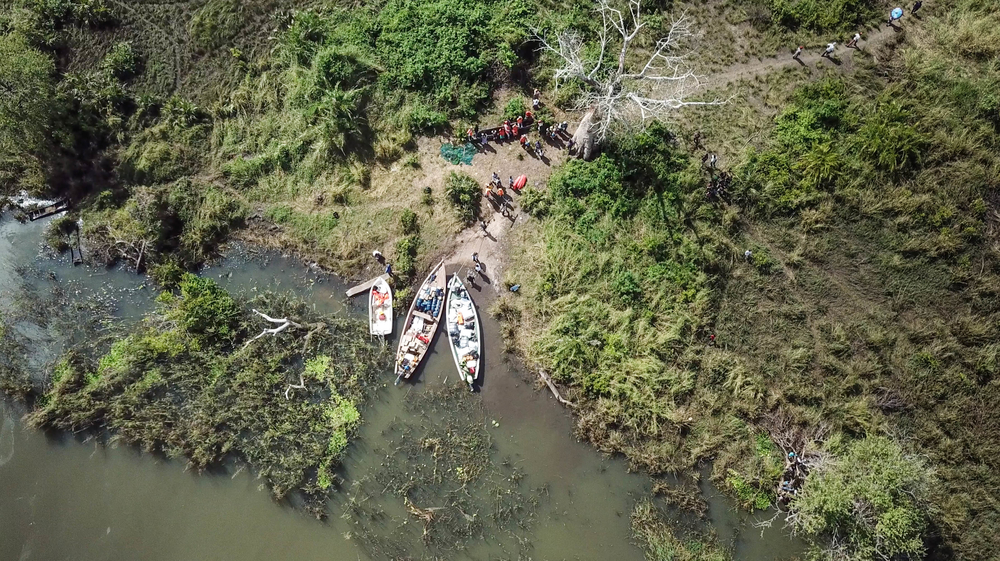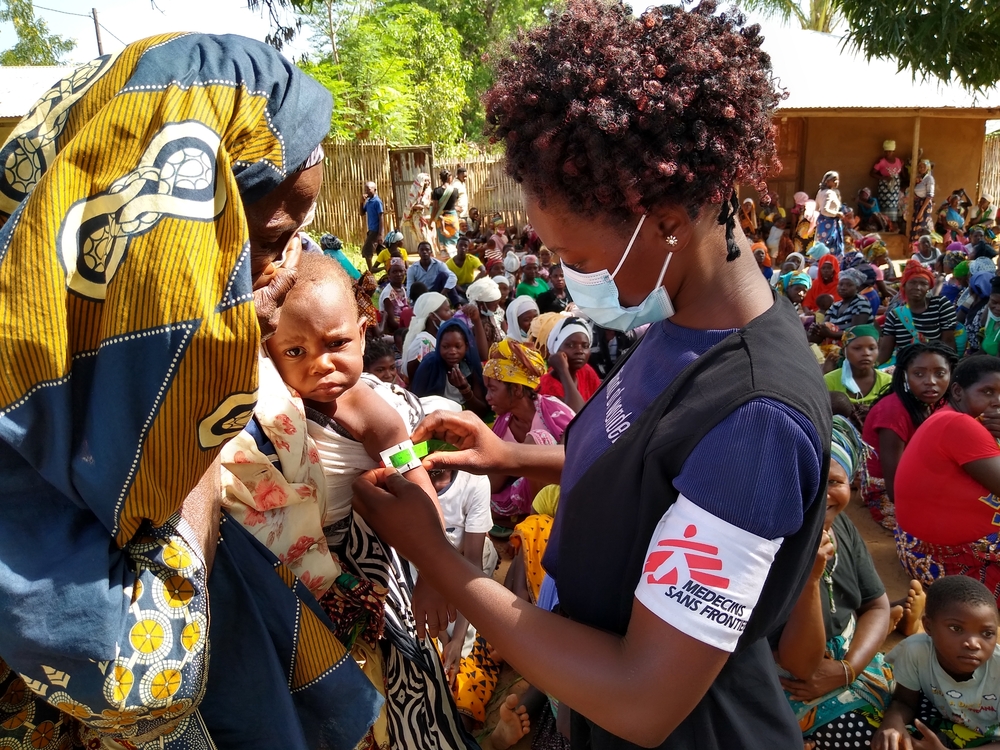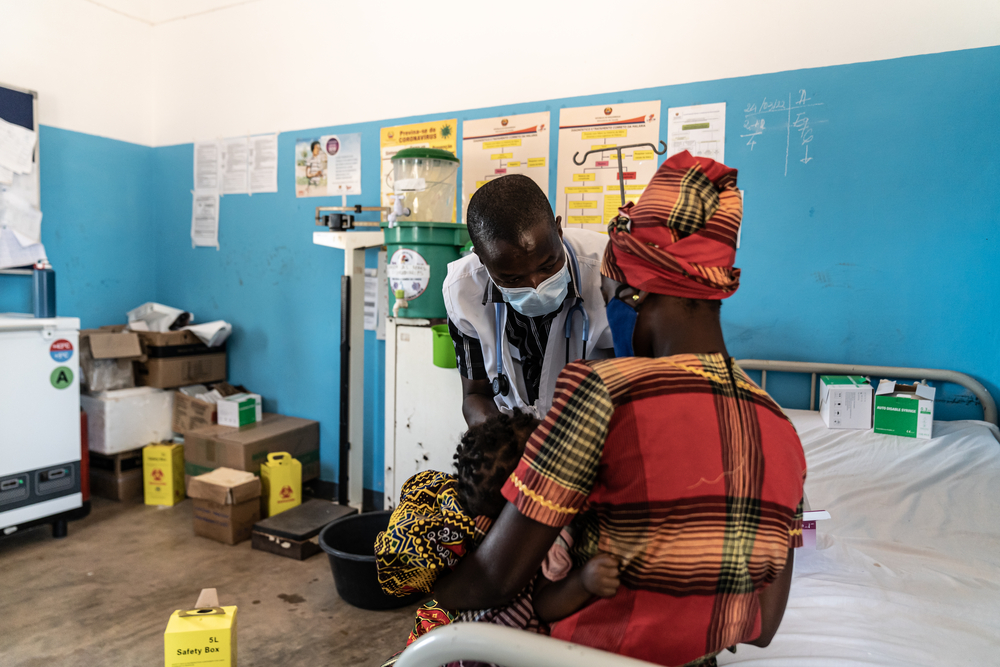Maputo, Mozambique – Médecins Sans Frontières/Doctors Without Borders (MSF) will tomorrow host a panel discussion to reflect on its medical and humanitarian work for the past 40 years in Mozambique and discuss its challenges. Since 1984, MSF has been collaborating with local authorities and communities in Mozambique to respond to emergencies, delivering life-saving medical assistance to those affected by conflicts, natural disasters, and disease outbreaks, as well to support the authorities to strengthen access to health care.
This special occasion will bring together nearly 100 people. This includes government representatives, healthcare professionals, partners, patients from different communities MSF serves and MSF representatives. The aim is to discuss and share experiences of working with MSF, the evolution of healthcare in Mozambique, the successes and challenges MSF has faced, as well as the ongoing efforts to address the health needs of the Mozambican people.

Nathalie Gielen, MSF Head of Mission in Mozambique, reflects on the organization’s extensive history in the country. “We’re very proud of the work we’ve been doing in Mozambique for four decades. But we’re also aware that there are still many challenges,” he said. Highlighting the importance of collaboration, Nathalie added, “We’re looking forward to discussing these challenges with all stakeholders to further improve our medical work in Mozambique in the coming year.” She adds.
In addition to the panel discussion, attendees will have an opportunity to go through the memory lane of MSF’s 40 years of work in the country through a photo exhibition showcasing powerful images from MSF’s history in Mozambique. The exhibition will highlight significant moments, milestones, and personal stories from the communities served by MSF. This visual journey will show the resilience and strength of the Mozambican people and the unwavering commitment of MSF’s staff and partners.
Key milestones and achievements since 1984
Emergency Response: MSF’s journey in Mozambique began with urgent responses to cholera epidemics and the devastating floods that cyclically impact the country. Over the years, we have tackled health challenges exacerbated by climate change such as Neglected Tropical Diseases, malaria, cholera, and other vector-borne illnesses.
Conflict and Displacement: Our teams have played a crucial role in conflict-affected regions, particularly in Cabo Delgado, providing essential medical care and support to displaced populations. Amidst ongoing armed conflict, MSF’s presence has been vital in addressing complex humanitarian challenges and ensuring access to healthcare for the most vulnerable.
Healthcare Access: MSF has made significant strides in improving healthcare access by establishing and maintaining hospitals, clinics, and mobile health units in remote and underserved areas, ensuring that essential medical services reach those who need them most. Additionally, our focused efforts on combating HIV/AIDS and tuberculosis have targeted key and at-risk populations, providing critical interventions and care to those disproportionately affected by these diseases. Through these initiatives, MSF continues to play a vital role in enhancing the overall health and well-being of communities across Mozambique.
Innovative Care: Implementing innovative healthcare solutions, such as community-based treatment programs for neglected tropical diseases, which have significantly improved health outcomes of communities in Nampula.
Partnership and Capacity Building: MSF has consistently collaborated with the Mozambican Ministry of Health and other stakeholders to rebuild and strengthen the health system post-conflict. Also, we’re working together with health authorities on building up skills and capabilities of health professionals. This partnership strategy is designed to be comprehensive and sustainable, addressing both immediate needs and long-term healthcare goals.
Advocacy: MSF has been a strong advocate for the health and rights of vulnerable populations in Mozambique. By engaging with government bodies, local communities, and international partners, MSF influences healthcare policies to prioritize people with the biggest needs. Our advocacy focuses on improving access to essential medical services, addressing social determinants of health, and promoting equitable, high-quality care.


Despite these achievements, Mozambique continues to face significant challenges. The impacts of climate change and violence in Cabo Delgado have affected and displaced hundreds of thousands, reversing gains in HIV control and exacerbating humanitarian needs. MSF remains committed to addressing these challenges through continued medical assistance, advocacy, and innovative healthcare solutions.












